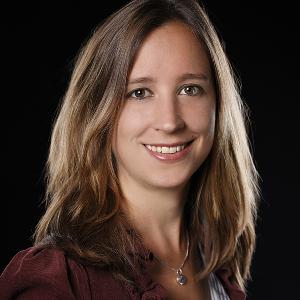Heinz Maier-Leibnitz Prize for Irmtraud Huber from LMU's English Department
9 Mar 2022
Literary scholar receives most prestigious German award for early career researchers for her work on the role of time in poetry.
9 Mar 2022
Literary scholar receives most prestigious German award for early career researchers for her work on the role of time in poetry.

One of this year’s Heinz Maier-Leibnitz Prizes is going to Irmtraud Huber, Assistant Professor at LMU’s English Department. Worth 20,000 euros, the prize is considered the most prestigious award for early career researchers in Germany. It is conferred by the German Research Foundation (DFG) and the German Federal Ministry of Education and Research (BMBF) to “outstanding researchers who are at an early stage in their scientific careers and do not yet hold a tenured professorship.” This year’s jury chose four female and six male researchers.
Irmtraud Huber’s main research areas are narratology and poetry, primarily that of the 19th century and the turn of the millennium. Within these areas, she is especially interested in the phenomenon of temporality. In her work, Huber combines historical and cultural studies approaches with esthetic awareness of form, as it says in a DFG press release about this year’s Heinz Maier-Leibnitz Prize. She not only queries commonplaces of conventional genre theory, but, at a more fundamental level, interrogates the dominant narrative conception of time in western societies and its historical roots. In addition, Huber advances substantial ideas about the fundamental ways in which the experience and consciousness of time are reflected by means of artistic shaping and forming processes: “Her postdoctoral thesis on 19th century English poetry illustrates very well the fruitfulness, not least methodologically, of this mode of analysis.”
In Against Timelessness: Rethinking Poetic Time through Victorian Poetry, Irmtraud Huber explores the question as to how changes in the dominant conception of time during the reign of Queen Victoria affected poetic production and theory. In a time of transformation, in which time regimes and perceptions changed perhaps most of all, a literary genre that had long devoted itself to the timeless, everlasting, and eternally true was increasingly forced to reinvent itself. Among other aspects, Irmtraud Huber investigates the challenges that the new authority of science and the runaway success of the novel presented for the poetic ideal of timeless truth.
Irmtraud Huber is Assistant Professor at the English Department at LMU Munich. On completing her studies in general and comparative literature, English literature, and theatre studies at LMU, she worked as a teaching assistant at the University of Bern, where she completed her Ph.D. on literature after postmodernism. With funding from the Swiss National Science Foundation, she has carried out research at Columbia University, Cambridge University, and Queen Mary University of London. In the summer of 2020, Irmtraud Huber was Junior Researcher in Residence at the Center for Advanced Studies (CAS) at LMU. In addition, she is Associated Postdoctoral Fellow at the Walter Benjamin Kolleg at the University of Bern.